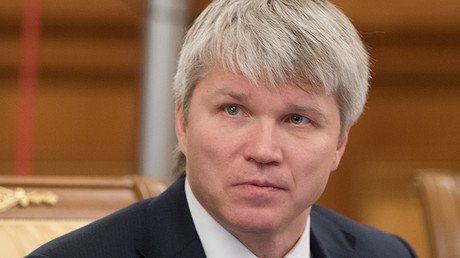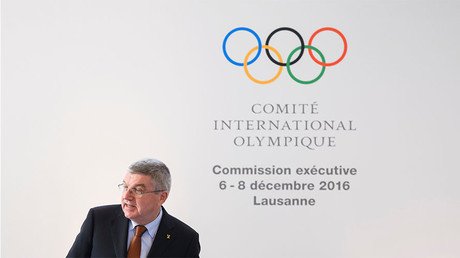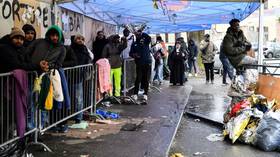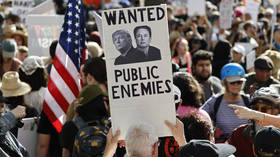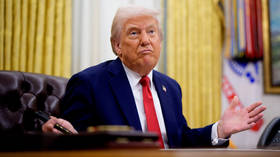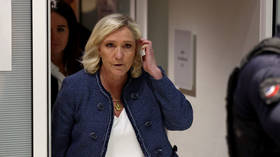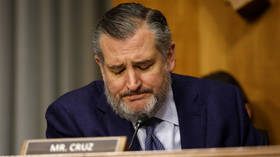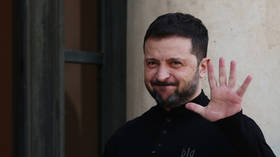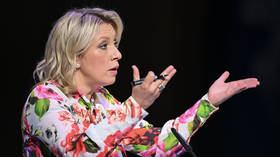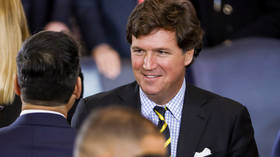NYT ‘distorted & took out of context’ words of Russian anti-doping agency head – RUSADA
The New York Times misquoted the acting head of Russia’s anti-doping agency (RUSADA), Anna Antseliovich, the agency said in a statement, contesting the newspaper’s claim that Russia acknowledged the existence of an institutional doping program.
“The words of the acting Director General, Anna Antseliovich, have been distorted and taken out of context,” the statement issued by RUSADA says.
The agency went on to explain that Antseliovich was actually just drawing attention to the fact that Richard McLaren, the Canadian lawyer who compiled a report detailing the results of an investigation into doping allegations against Russia, used the words “institutional conspiracy” instead of “state doping system” in his latest December 9 report.
At that time, McLaren said at a news conference that “it was a cover-up that evolved from uncontrolled chaos to an institutionalized and disciplined medal-winning conspiracy.”
Antseliovich stressed that McLaren ruled out the possibility of the involvement of the Russian leadership in the alleged doping program but she never confirmed the existence of any “institutional conspiracy,” the RUSADA statement emphasizes.
“Unfortunately, [New York Times journalist] Rebecca Ruiz has taken these words out of context and created an impression that the RUSADA executive group acknowledges the existence of the institutional cheating scheme in Russia,” it adds, stressing that “RUSADA... has no authority to confirm or deny such facts.”
The agency then once again re-affirmed its commitment to the fight against doping and strict compliance with the International Anti-doping Codex and Russia’s anti-doping regulations.
On Tuesday, the New York Times published an article titled ‘Russians No Longer Dispute Olympic Doping Operation,’ in which it claimed that Russia “conceded” that its officials carried out “a far-reaching doping operation.”
In its publication, the newspaper cited Antseliovich, as saying “It was an institutional conspiracy.”
The media outlet also cited McLaren telling the paper that he was pleased Russian officials were no longer disputing his finding.
The article was criticized by Russian Sports Minister Pavel Kolobkov, who said that it is inconsistent and stressed that Russia insists on the absence of any state-sponsored doping system and makes every effort to fight doping.
“There was not, there is not and there could not be any system of supporting doping in Russia,” Kolobkov told R-Sport.
Kolobkov then drew attention to the fact that Antseliovich “is neither a governmental official, nor a civil servant at all,” as RUSADA is not a governmental organization and is not subordinate to the Russian Sports Ministry.
Stanislav Pozdnyakov, a member of the RUSADA supervisory board and the deputy head of the Russian Olympic Committee, also sharply criticized the article published in the New York Times by calling it a “journalistic fake.”
“The quotes featured in the article were taken out of context of the [interview]. That is why I would call this article a journalistic fake, a bogus story,” he told R-Sport, adding that this type of approach does not help solve the problem of doping that “concerns not only Russia but all sports around the world.”
He also expressed confidence that the sports community would agree with him in his assessment of the New York Times article, and called on foreign journalists to “be more scrupulous about the publication of such materials.”
In response, Rebecca Ruiz insisted that she did not take anything out of context and stressed that all the quotes featured in the article are “correct.”
In response to the Kremlin comments, all quotes in our story today are accurate. (Tweet 1 of 3) https://t.co/FuF1xDTes4
— Rebecca R. Ruiz (@RebeccaRuiz) December 28, 2016
Ruiz also said that she received confirmation of Russia’s acknowledgement of the existence of the doping program from Vitaly Smirnov, the head of the Russian independent anti-doping commission, although her piece in the New York Times does not feature an exact quote that could back up that statement.
I asked Vitaly Smirnov, Russia's antidoping reform chief appointed by President Putin, if this was correct. He said yes. (3/3)
— Rebecca R. Ruiz (@RebeccaRuiz) December 28, 2016
Russian presidential spokesman Dmitry Peskov earlier told journalists: “It was an interview to the New York Times. One should first check how accurate those words were.”
On December 9, McLaren claimed in his report that over 1,000 Russian athletes – in the summer, winter and Paralympic competitions, including 12 Sochi 2014 Olympic medalists – benefited from the alleged plot to conceal positive doping tests.
It followed another McLaren report published in mid-July which focused on the allegation that the Russian Ministry of Sport took part in swapping test samples in Moscow, also claiming that the Federal Security Service (FSB) assisted in the alleged plot.
The probe was based on accusations made in the New York Times by Grigory Rodchenkov, the former head of the Moscow Anti-Doping Laboratory, who is due in court in Russia on charges of abuse of authority and his own involvement in doping schemes.
In response, the Russian Sports Ministry said “there is no state-run program promoting doping in sport” and pledged to “fight doping with a zero-tolerance policy.”
Following the release of the second part of McLaren’s findings, Russia was stripped of the Bobsleigh and Skeleton World Championships, which was scheduled to take place in Sochi in February 2017.
